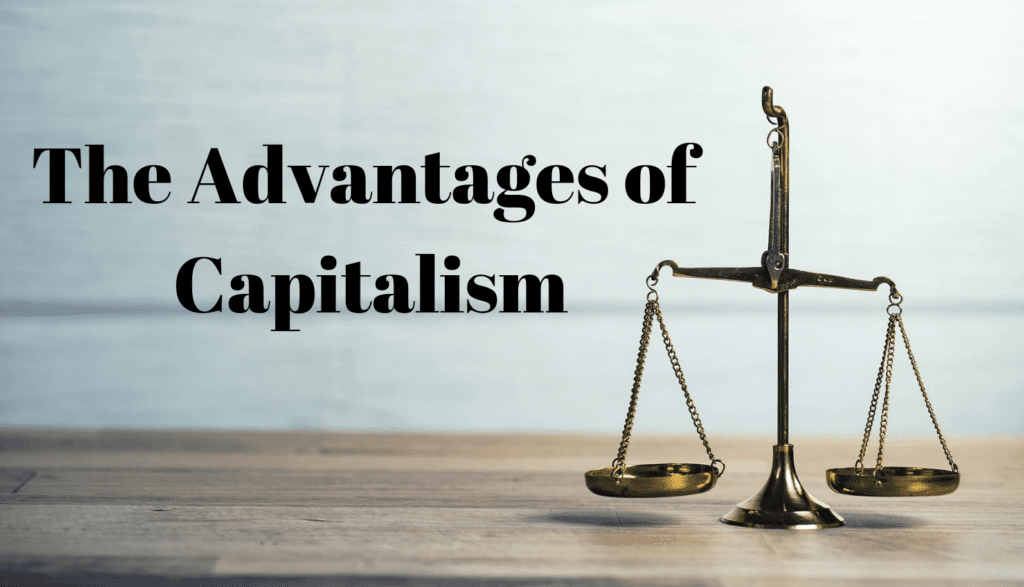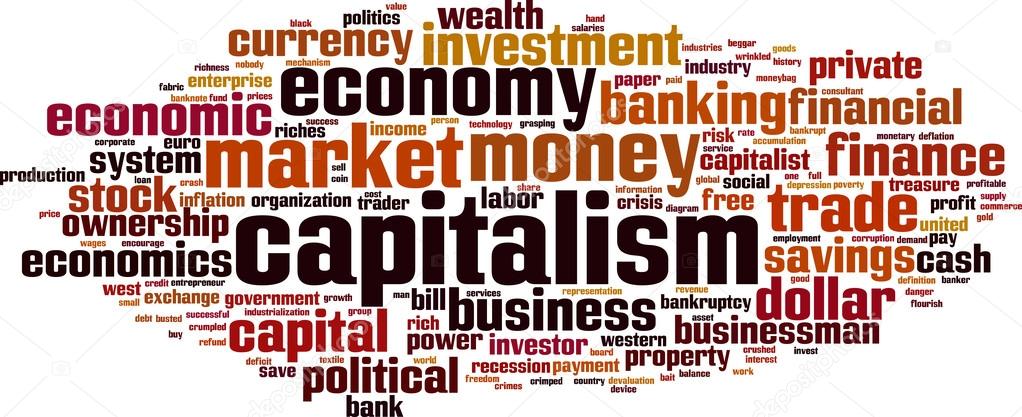Is capitalism really the evil entity many people claim it to be? Or is it possible that people misunderstand capitalism? Worse, could they be unknowingly promoting questionable socialist values? What IS capitalism, anyway?
With the latest news and political debates, you might notice that capitalism is gaining a bad reputation. You might see some political figures touting socialism as a superior — even noble — alternative to capitalism. However, if you weren’t an Economics major, you may find it hard to weigh the arguments people are throwing around.
That’s why, in this article, we are breaking down:
- What is capitalism?
- What is socialism?
- The differences between each
- Why capitalism works and socialism doesn't
- Our vision of capitalism
Let's get started.
So, What is Capitalism, Anyway?
What Is Capitalism In Simple Terms?
Definition: Capitalism is an economic system in which private individuals or businesses own the means of production, such as capital, private property, and private companies. This system tends to operate within a market economy based on supply and demand.
What the heck does that mean?
You own you. You also own your property, including the skills, talents, knowledge, and connections you’ve developed that enable you to make money. Therefore, you are the means of production, and you own yourself and all the fruits of your labors. Nobody, including the State, can take what you own - at least not ethically.
Supply and demand is the natural way the marketplace determines which products and services flourish and which fail. If people want something more than they want to hold onto their money, there’s high demand. However, if nobody wants it more than they want their money, it’s a dud. When it’s a product or service with a limited supply and demand goes up, prices go up, too. In short, the marketplace (buyers) determine the fate and value of products and services.
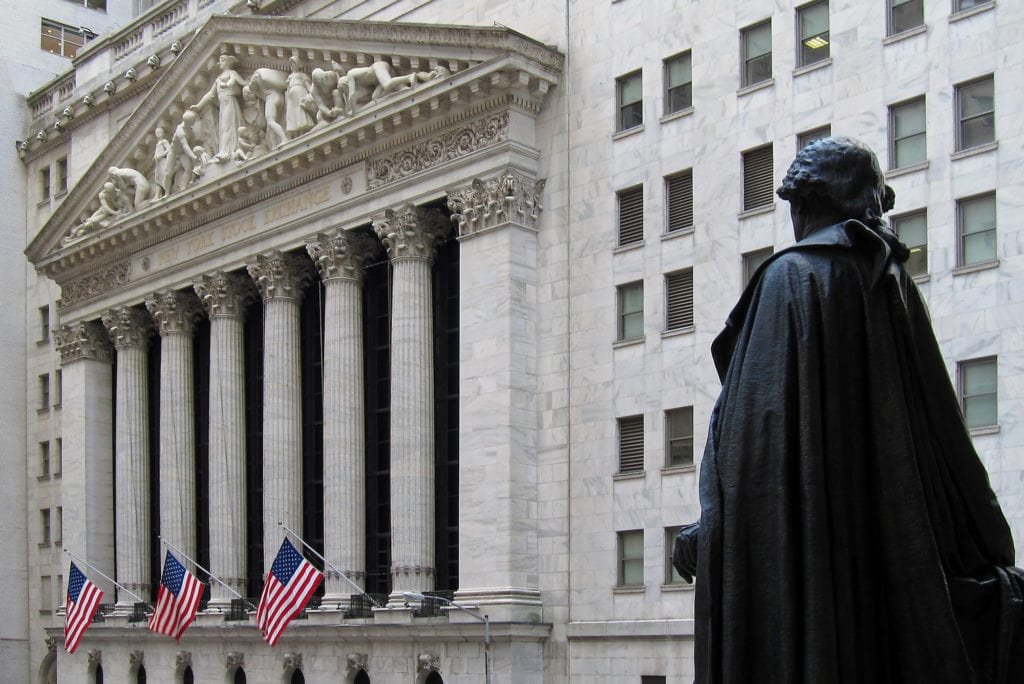
Who Benefits From Capitalism?
Arguably, the vast majority of people thrive under capitalism. In broad strokes, those who do tend to display these characteristics:
- Industrious
- Frugal
- Responsible
- Disciplined
- Patient
- Entrepreneurial-minded
However, as some socialists—err… democratic socialists— might tell you, everybody is a victim under capitalism. The everyday hardworking citizen gets stomped on by the foot of capitalists.
They point to big pharma, big tech, and big business as examples of the system's villains. (Now, they have a point if they're talking about crony capitalism. But they rarely make that distinction.)
However, here's the thing.
Capitalism offers equal opportunity for success — it doesn't guarantee an equal outcome. Democracy paired with capitalism gives everybody the ability to create growth and success.
Is Capitalism Good Or Bad?
Here at Capitalism.com, you might already guess our answer to this question. Capitalism can do incredible good for society. Some features of capitalism that are beneficial to the individual include:
Capitalism Is Good Because It Recognizes the Right to Self-Ownership
Under capitalism (and the U.S. Constitution), you enjoy a right not universally recognized. It's property rights. You, the individual, have a right to be who you want to be. In short, you own yourself.
You can do what you want to do and reap benefits from what you produce. That is, so long as you're not physically harming others. Those benefits include mutually agreed-to compensation for your labor.
For example, if you decide that one hour of your labor is worth $15 and your employer agrees, you receive $15 for each hour.
You have a right to the money your labor produces.
Sounds fair and logical, doesn't it?
Well, some anti-capitalists might disagree. In the case of powerful authoritarian governments, they seize the fruits of your labor. They tax you. They take your property. Finally, they either hoard or distribute it as they deem fair. In that scenario, you are a subject, not a citizen.

Capitalism Is Good Because It Incentivizes Wealth-Producing Behavior
Capitalism recognizes you as an individual. You carry property rights, own yourself, and have an incentive to produce. It’s up to you to create and deliver value in the marketplace if you want to earn an income. Wealth-producing behavior could look like:
- Going to trade school to learn a specific skill
- Investing in your education to become attractive to certain employers
- Becoming an entrepreneur and starting your own business
- Inventing a product or process the marketplace wants
All of those paths require time, money, sweat, or some combination of the three. Why would you want to do this?
Because the more valuable you make yourself, the more likely you are to make more money, prosper, and achieve financial freedom.
Therefore, individuals spend hours improving themselves through thought, effort, trade, and ingenuity. These are highly valued traits in a capitalist society. In addition, it's why entrepreneurship, education, and delayed gratification are critical to success.
Capitalism Is Good Because It Embraces Personal Responsibility
Capitalism hinges on the concept of ownership. We take ownership of problems in the world and use our imagination and resources to solve them. Also, we take ownership of ourselves, recognizing that nobody else is compelled to provide for us. Owning ourselves also means we value our integrity, taking responsibility for our decisions and results. One of those decisions is whether to create value and serve others - or just to extract all we can (take the money and run).
When you create value, people pay you. They’d rather have what you offer than the money they own. Creating value can take many forms: as an employee, intrapreneur, service provider, entrepreneur, or investor.
By creating value, you gain economic power. With more economic power, you can create the kind of life you want to live. You create that life. Nobody creates it for you.
Compare this to an excessive welfare state.
There, the government guarantees everybody a minimum standard of living. Their subjects or citizens rely on the government to take care of them.
Certainly, the government can play a role in caring for its citizens. That is, in situations where family, friends, and other communities can't. Also, some might argue that having too broad or deep a safety net can disincentivize hard work. Why work if the government will provide for your needs regardless?
Capitalism Is Good Because Competition Creates Innovation
Many people praise capitalism because it encourages innovation.
Don't think so?

Just take a look at Amazon. Amazon has revolutionized the way everyday consumers think about online shopping. Their 2-day Prime shipping has raised the bar for convenience. It's a standard that many e-commerce retailers fail to meet.
Also, look at Samsung and Apple. These two phone companies are always trying to one-up each other. They force each other to improve their product with every new launch. Remember mobile flip phones in the early 2000s? You can agree that we've made significant strides.
However, this one takes the cake: SpaceX — the first private company to enter space. According to The Washington Post, it was "one small step for man, one giant leap for capitalism." Under Elon Musk's direction, he launched the first rocket that:
- Replaced knobs and buttons with touch-screen controls
- Could fly autonomously without human control
- Has reusable parts
Moreover, if you're still not convinced, ask yourself when was the last time NASA launched a rocket into space. It was back in 2011 — nearly one decade ago. Lesson learned. The private sector produces more efficient, higher-quality results than government bureaucracies can.
These capitalist examples reveal all these incredible advantages. Yet, thousands of people would have you think otherwise.
Why Do People Say Capitalism Is No Good?
Let's face it.
Capitalism has a bad reputation, and it's only getting worse with each election cycle. But it's a no surprise why. Many people misunderstand the virtues of capitalism. Instead, they wholeheartedly (and blindly) believe:
They Say: It's Nothing But Dog-Eat-Dog
Rather than capitalism being a value-driven economic system, it has devolved into a dog-eat-dog economy in their minds. They say the rich get richer, and the poor get poorer because the rich stand on the backs of the poor.
It's a zero-sum game, they say. In their thinking, there is only so much pie to go around. If you have, someone else goes without. Greedy business owners raise prices. Then they lower wages. According to anti-capitalists, greed perpetuates an income equality gap wider than the Grand Canyon.
In this mindset, only the wealthy elite get to enjoy life. Influential individuals hoard the majority of resources. Finally, they keep it by creating corrupt monopolies where they can exploit hard working Americans. This is corruption and cronyism, not free-market capitalism.
They Say: How Dare You, Rich People?
While "greedy capitalists" are busy lining their pockets, what happens to everybody else?
Collateral damage.

Some believe that under capitalism, profit is king — even if obtained at the detriment of others. When people create wealth, it's only by harming everyone around them. They crush other businesses, abuse the working class, and harm the environment:
- Large corporations hog the market share and demolish small companies.
- Corporations increase profit margins by cutting wages.
- Factories pollute our oceans and harm the environment. (Activist Greta Thunberg expressed the outrage of socialists everywhere with her famous, “How dare you!")
In short, they say, capitalists stomp on everyone and everything on their way to the top.
They Say: Inherited Wealth Is Evil
Under capitalism, you have a right to your private property. That includes your money. As we mentioned earlier, if you own yourself, you also own the fruits of your labor. When you own something, you have the right to do with it what you please (as long as you stay within the bounds of the law). That includes passing wealth down to subsequent generations.
Critics of capitalism disagree. They resent those born into wealth and privilege and label them evil and greedy. Heirs have access, capital, and opportunity they did not earn. Critics cry that this is unfair. After all, not everyone benefits from an ancestor's work - or the compounding nature of wealth.
To critics, the ability to inherit only exacerbates the income equality gap. They say such a headstart negates equality of opportunity.
They Say: Eat the Rich!
In a system with no guarantee of outcome, there are bound to be varying levels of success. Some people create enormous wealth. Others struggle even to keep a roof over their heads and food in their bellies. The disparity between rich and poor can be dramatic. Only the cold-hearted person can turn a blind eye toward those who are desperately poor.
If you look at recent news, you'll notice how reporters and activists conflate capitalism with racism. The Daily Wire reported on how Black Lives Matter activists "stormed a Beverly Hills residential neighborhood chanting 'Eat the rich!' and 'Abolish capitalism now!'"
Some see poverty and blame the rich for it.
Undoubtedly, there are places and times in which the rich devour the poor and plunge them into abject poverty. But that’s not capitalism. That’s wickedness. To blame capitalism on social issues is misguided.
When individuals jump on opportunities, own problems, and create tremendous value in service to others, they enrich themselves. But they also now have greater power to help others. You can’t give what you do not have. Capitalism creates opportunities to offer employment, to share with others, and to create positive change on a massive scale.

They Say: Boom and Bust Cycles Prove Capitalism Doesn’t Work
Just as we've observed with the 2008 financial crisis, the history of capitalism shows several dips. A free-market economy is vulnerable to booms and busts. This leaves many people skeptical or even fearful of capitalism. While times of prosperity can be enjoyable, anticipating the next recession can be stressful.
Many people are feeling these exact emotions in response to the COVID-19 pandemic. Due to forced business closures and healthy safety guidelines, many industries are struggling. The oil and gas industry is declining due to the reduced need for fuel. Some demand government-funded relief.
This pandemic is initiating a movement for a "Great Reset" of global capitalism. According to various nonprofits, government figures, labor unions, and activist groups, we must create a new economic infrastructure that promotes fairness, equity, and greater resilience in the face of the pandemic.
But some critics are skeptical.
"How, exactly, are these leaders planning on convincing Americans and citizens of every other industrialized nation to abandon modern capitalism?" Fox Business News reports. "By scaring people into believing that these changes are essential for stopping the next great 'crisis' the world will face when the COVID-19 pandemic finally subsides: climate change."
The Great Reset is still in its planning stages. We'll have to wait and see whether it indeed delivers a replacement for modern capitalism.
(We remain doubtful.)
How Does Capitalism End?
Unfortunately, public opinion of capitalism is reaching an all-time low. Could this spell the end of capitalism as we know it?
What Is End-Stage Capitalism?
With the rise in popularity of socialist policies and democratic socialist figures, you may have heard the term "late-stage capitalism."
Late-stage capitalism aims to expose the hypocrisies and unsustainability of modern-day capitalism. For example, many people criticize corporations for using social issues as a marketing tactic. For instance, Budweiser spent $5 million on a Super Bowl ad about its disaster relief efforts. A private company spent millions of dollars to brag about how they donated millions of dollars. It just looks terrible.
Stunts like this are why many people are distrustful of businesses. So, they position big business as the bad guys. They say, “Big companies are just corrupt monopolies run by unscrupulous individuals operating a rigged system because they pay lobbyists a lot of money to influence politicians. The rigged system helps them advance their evil agenda of inequality, allowing them to hoard all the markets and wealth.”
It feels like we're reaching a breaking point.

The 2008 financial crisis has already shaken the American people's faith in the economy. Then came the 2016 presidential campaign. It's safe to say that the United States is profoundly divided. Donald Trump's presidency has further polarized the nation.
Yet, there was another element that came into play.
Bernie Sanders and Socialism.
Recent presidential elections gave Bernie Sanders a megaphone. He used the platform to voice his democratic socialist policies of:
- Universal health care
- Climate change efforts
- Free college
- Doubling the federal minimum wage
- Increasing taxes on the rich
- Disempowering big tech
It's little surprise why Bernie Sanders resonated with many Americans — especially the younger crowd. Bernie Sanders brought these radical policies into the mainstream. He introduced socialism as an alternative economic system to capitalism.
On paper, socialism just looks better. With more people embracing socialism, many people began to believe we are entering end-stage capitalism.
But before we dive deeper, let's explore socialism. What is it? Is it good? Is it a viable alternative? Let's find out.
What is Socialism?
Socialism is an economic system in which the state (aka the government) owns means of production. The state owns and controls major businesses, industries, and distributes the wealth fairly and equally.
Generally, socialist societies feature a more powerful state. The state can raise and levy taxes to enable wealth redistribution. Wealth distribution is meant to be fair and equal so that everybody enjoys their country's resources.
As Karl Marx says in his Communist Manifesto, "From each according to his ability, to each according to his needs." That might sound nice on the surface; each person’s needs are met. But what it means in reality is entirely different. At its core, this policy means people exist for the sake of the State rather than the State existing for the sake of the people.
What Is The Difference Between Capitalism And Socialism?
You will find capitalism and socialism are probably just as polarized as politics in the United States. Here are the main differences between capitalism vs. socialism:
Means of Production
Capitalism:
As you learned earlier, the means of production belong to private individuals and private businesses. Individuals are also entitled to property rights (e.g., capital, land, their business). Generally, individuals enjoy greater autonomy and have the ability to control their affairs.
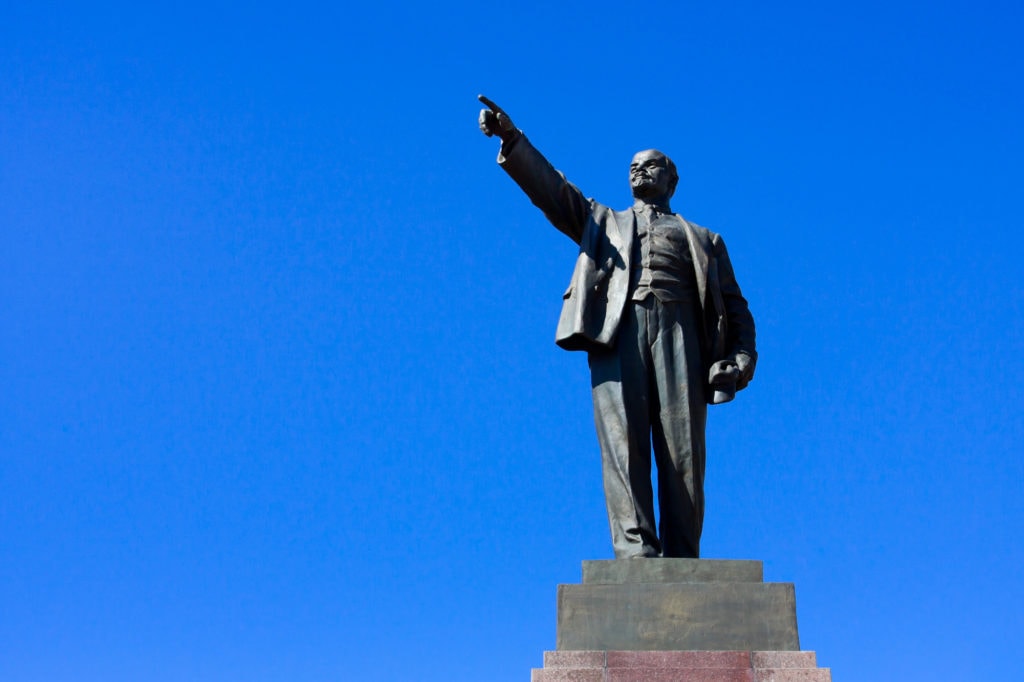
Socialism:
The state owns the means of production. The state seizes the wealth of individuals and businesses generate. Then it distributes those resources among the population. There is a limited free market. The government controls production and pricing to meet its citizens' needs. Everybody works toward the benefit of the common good.
Income Equality
Capitalism:
The individual and free-market determine income. Generally, the more you work and the greater your skillset, the more money you will make. Similarly, businesses that create value will grow and enjoy boosted profit margins. In a free market, the government may enforce laws and regulations to encourage a level playing field.
Socialism:
Value and profit are not the driving factors, like capitalism. Instead, income gets distributed according to need. In capitalism, people associate private ownership with the wealthy elite. Thus, the government will seize private property and levy taxes to close the income gap. Taxes will go to welfare programs, such as free education, healthcare, and social security.
Consumer Prices
Capitalism:
The free market sets prices based on supply and demand. As products improve and become more cost-efficient to produce, their price drops, and they become accessible to more people.
Socialism:
The basis of supply and demand leads to corrupt monopolies. To prevent big corporations from charging outrageous prices, the government sets pricing or subsidizes certain purchases. Unfortunately, this may also lead to inflation.
Healthcare
Capitalism:
Like other industries, pricing within the healthcare industry is subject to supply and demand within a free market economy. A free-market healthcare system spurs innovation. A bloated government-funded agency just feeds itself. Government-run programs tend to be inefficient. For example, Canada's healthcare system is notorious for extensive waitlists.
Socialism:
The government plays a more significant role in delivering healthcare to its citizens. Through universal healthcare programs, every citizen has access to healthcare.
Innovation

Capitalism:
Creating value and profit are drivers in technological advancements and innovations. Over time, private businesses develop better products and services at lower costs. Just look at the evolution of the computer. USA Today notes how "the most basic model of an HP 3000 sold for $95,000 in 1972." Now, you can buy more powerful laptops for under $1,000.
Socialism:
Stifles innovation, as there is little incentive to create and improve. Critics of socialism argue that socialism breeds inefficiency.
Taxes
Capitalism:
The government is inefficient with how they spend taxes. Higher taxes can stifle the economy. Lower taxes put more money back into individuals' pockets, stimulating the economy. Moreover, individuals have more power over how they spend their money. (Note, this is not the same as trickle-down economics!)
Socialism:
In a totally socialist society, taxes would not be necessary. The government already owns the means of production. But with the implementation of a tax system, high taxes would become the norm. After all, how else will the government pay for those costly programs?
Capitalism vs. Communism
While socialism is gaining more traction within the U.S., we're happy to know that most people aren't embracing full-on communism.
Communism and socialism share many qualities, such as a powerful central government in which the state plays a role in managing the means of production. However, socialism falls somewhere between capitalism and communism. Unlike communism, socialism may still allow for individually-owned or communally-owned property.
Key characteristics of capitalism that distinguish it from communism are property rights and an emphasis on the individual. Communism holds power over all economic resources, abolishes the class system, and eliminates private property rights. Under capitalism, individuals enjoy private property rights, which includes the money they make.
So, Why is Socialism Gaining Popularity?
Socialism is sweeping the United States by storm. Young Americans are rejecting capitalism in favor of socialism. NBC News quotes a 2019 YoGov poll where 70% of millennials would vote for a socialist.
But it isn't that young adults are just outright socialists.

No, they are buying into Bernie Sanders' newly branded socialism called "Democratic Socialism." This system strips power from the elite and hands it to the workers.
And it's not just young citizens. Even political figures are jumping onboard the socialism train. Calling out Jeff Bezos and Amazon's tax practices, Seattle City Councilwoman Kshama Sawant created a video about how she and others are "preparing the ground for a different kind of society."
"This police state. We cannot and will not stop until we overthrow it," Sawant says, "and replace it with a world based, instead, on solidarity, genuine democracy, and equality: a socialist world."
As you can see, socialism — especially of the democratic variety — is picking up traction. The definition of democratic socialism isn't exactly concrete. But you will usually find it adhering to the following tenets (but not limited to):
They Want Free Education
After the baby boomer generation, parents convinced their children that college was necessary for success. Without a college degree, you will not get very far.
And so that's what they did — millennials started going to college in droves.
But something happened. The government got involved. With the government now guaranteeing the loans, colleges started to jack up their prices. After all, if we guarantee students the money, colleges have no incentive to keep their costs competitive — and jack up their prices, they did.
According to Business Insider, "The average annual increase in college tuition from 1980-2014 grew by nearly 260% compared to the nearly 120% increase in all consumer items."
Education has long been touted as a means of increasing your economic power. Yet, many millennials are graduating with tens of thousands of dollars in debt. It's no wonder why so many young adults feel disillusioned with the current economic system.
This is why Bernie Sanders is so popular among millennials. He spoke to these pain points and addressed them with his proposed college tuition forgiveness program.
They Want to Tax the Rich More
According to democratic socialist principles, big corporations are the ones to blame. They are hoarding the wealth, while hardworking citizens are struggling to scrape by.
Many people are tired of extremely wealthy people holding excessive economic power. They resent these economic powerhouses expanding their political influence because they can afford expensive lobbyists to influence favorable legislation.
They say social ownership is a better alternative to capitalism and that we should raise taxes on the rich. Businesses are public-owned with the workers managing them. No longer will there be a power gap between the worker and the elite.
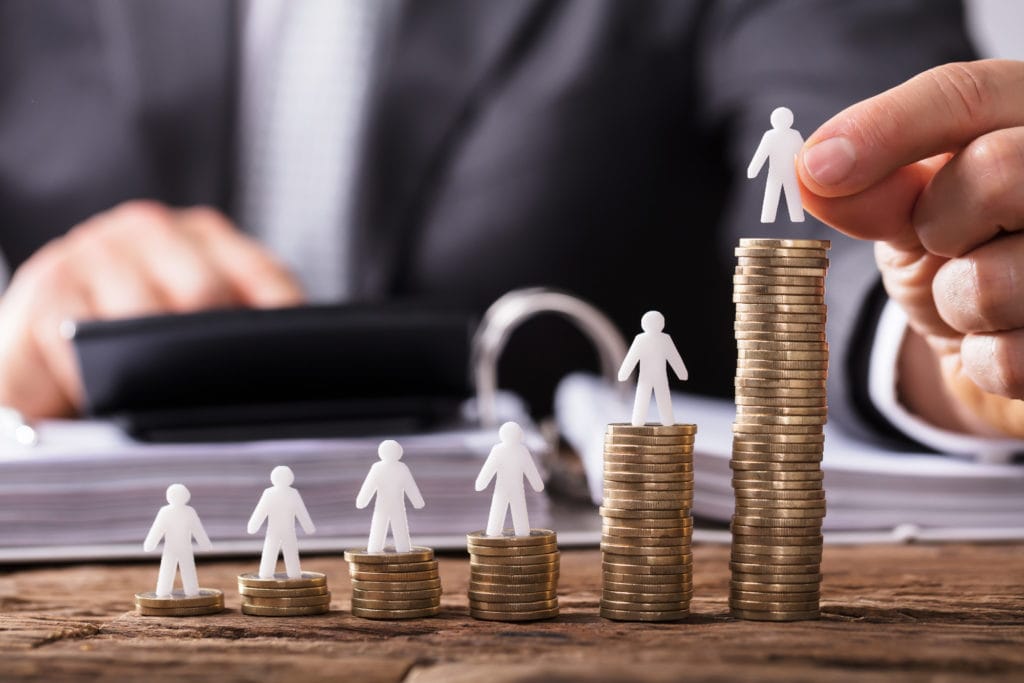
They Want to Raise the Minimum Wage
Now, let's discuss the minimum wage. Under capitalism, billionaires live lavishly while some people make only $15 per hour. Under socialism, this is unacceptable.
To redistribute wealth, democratic socialists want to increase the minimum wage. The workers should be the ones benefiting — not the business owner. Raising the minimum wage helps everyday people obtain a universal income that can support themselves and their families.
Socialism might sound pretty good when you put it that way. Right?
It might make you wonder which countries are practicing socialism successfully.
Where Has Socialism Worked?
Nowhere. Zip. Nada.
History shows us the socialist regimes lead to poverty, the infringement of human rights, and violence. Here's a list of a few countries that practice socialism:
- Maoist China
- Russian Soviet Federative Socialist Republic
- Cuba
- North Korea
Millions of people have died within these countries under socialist dictators. People have fled for their lives to places like Canada and the United States.
Full-on socialism has never worked anywhere successfully. So, why do so many young Americans' sympathize with socialism — especially when recent examples show us only failed attempts?
But if you think these are antiquated examples, let's fast forward to a more recent example.
Venezuela: A Riches to Rags Story
Venezuela had a lot going for them as a country. They were rich in oil, gold, diamonds, and other natural resources. Yet, there was incredible social unrest. People were looting stores, trying to feed themselves and their families.

Enter: Hugo Chavez.
Hugo Chavez was charismatic. He ran his campaign on restoring power to the people. No more corruption. Bring prosperity back to everyday Venezuelans. The people elected this man to the presidency in 1998.
And for a while, he helped his people. He seized private property. Redistributed wealth. Fed the hungry and poor.
Then Chavez started clinging to the power of the office. He rewrote the constitution to end term limits and allow unlimited reelections. These changes would keep Chavez in control for 14 years.
During these 14 years, Chavez spent a lot of money. "For years, Chávez relied on oil revenues to import food and sell it, along with other goods, at subsidized prices." The New Yorker reported. "While in power, he spent without restraint, managed to quadruple Venezuela's foreign debt, and expropriated or nationalized hundreds of firms, factories, and farms."
After Hugo Chavez died in 2013, Nicolás Maduro took office. Stuck in severe debt, Maduro printed more money. That caused the economy to undergo severe inflation.
Eventually, corruption, poverty, and hunger were the daily norm for everyday Venezuelans. People would wait in lines that stretched multiple blocks just to buy food. There were no opportunities for growth or prosperity. Many Venezuelans fled the country to seek better opportunities.
“But That Wasn't Real Socialism!”
Many anti-capitalists say it's unfair to blame Venezuela's decline on socialism. Instead, it was the mismanagement of the government that led to its downfall.
But see, that's the recurring pattern.
Under socialism, mismanagement and corruption will always happen. When you place the government in charge of the economy, feeding its citizens, and the means of production, guess what happens?
At best, Venezuela, poverty, and widespread violence. At worst, socialist Russia and mass murder.
The government can't be an expert at everything. It's a bureaucracy riddled with inefficiency. There comes a time when the government runs out of other people's money to spend. Then, the only option remaining is to print more.
So, it's best to be mindful of how they're selling socialism. They might be marketing only the honeymoon phase — taking from the rich and redistributing the wealth. But actual practice over the long term tells a different story.
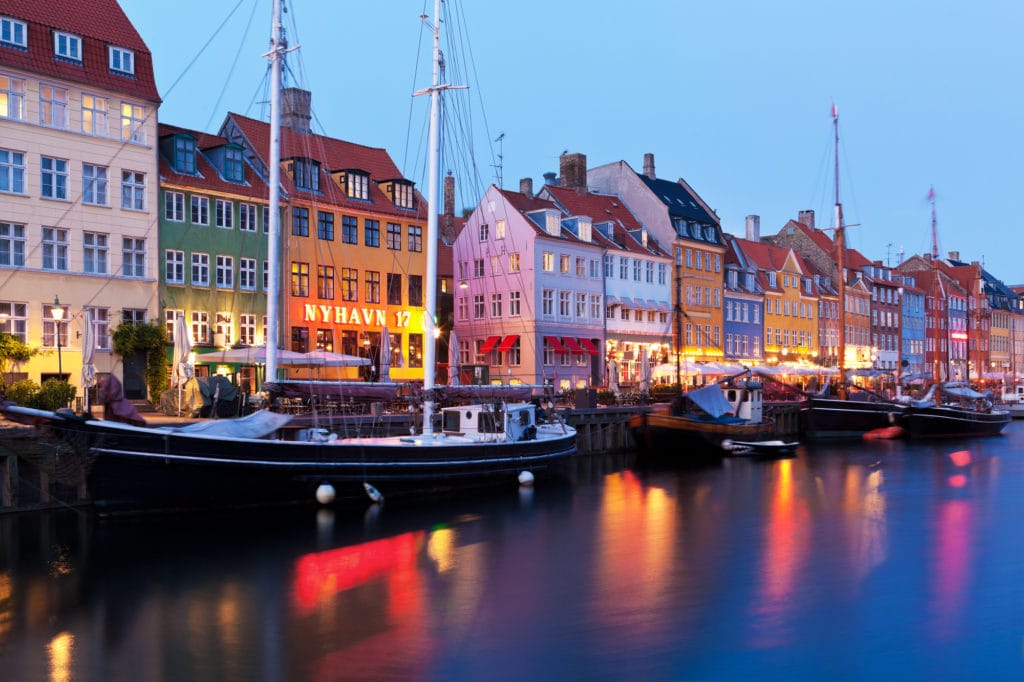
What About Sweden and Denmark?
But enough with Venezuela. What about the Nordic countries? Why can't the United States just adopt socialism the same way Denmark and Sweden do?
"When I talk about democratic socialism, I'm not looking at Venezuela. I'm not looking at Cuba," said Bernie Sanders during the presidential primaries. "I'm looking at countries like Denmark and Sweden."
But here's the thing.
These countries are not socialist economies. Even the Denmark Prime Minister Lars Løkke Rasmussen felt compelled to correct Bernie Sanders. "I would like to make one thing clear. Denmark is far from a socialist planned economy. Denmark is a market economy." He said, "It is also a successful market economy with much freedom to pursue your dreams and live your lives as you wish."
Johan Norberg, a Swedish author, and historian, also made a documentary titled Sweden: Lessons for America. It explains how Sweden was moving toward socialism until its detrimental effects pushed them to adopt a free market economy.
Sweden created a bigger and more powerful government that levied taxes to fund various welfare programs. Astrid Lindgren, a Swedish author, voiced her opposition in an opinion piece on the Swedish daily Expressen, asking how she got slapped with a 102% tax on her income.
Not only were taxes excessive, but even the programs they were funding suffered. People had to wait in long lines for healthcare. They couldn't access their pension. And eventually, the country experienced an economic crisis in the 1990s.
That's when Sweden decided to implement policies that align with a free market and capitalism country:
- They cut public spending
- Privatized certain industries
- Abolished government monopolies
- Employed a school voucher system, which encourages schools to compete
- Privatized pension system
Yes, they have a more extensive welfare system than most. But they understand that government involvement can stifle innovation and deregulation can boost the economy.

Why Is Capitalism Bad For The Poor?
Many anti-capitalists argue that capitalism causes poverty, inequality, and unemployment.
But here's the thing about capitalism.
Capitalism prioritizes the individual, and the individual owns the means of production. The amount they produce or make will vary. By its nature, capitalism will produce income inequality.
People will make different amounts of money. Those who trained to become a doctor will likely make more than a janitor. Those who work 80 hours a week will potentially make more than those who work 15-hour workweeks.
Capitalism does produce guaranteed and equal outcomes.
Yet, this should not suggest that capitalism is bad for the poor. Nor does it necessarily cause poverty. Instead, the poor can use capitalism as a tool to lift themselves out of poverty. Capitalism allows you to make more, do more, be more.
The same can't be said for socialism. Yes, there may be more income equality in socialism. Everyone can be equally poor.
That's why we encourage you to ditch socialism and embrace pure collaborative capitalism.
But if you're still experiencing Berniemania and feeling the Bern, hopefully, this will convince you.
Shifting Your Perspective on Capitalism
It's time to undo the bad rap surrounding capitalism.
Democratic socialists, like Bernie Sanders and Alexandria Ocasio-Cortez, might believe that all capitalists are money-hungry hoarders who exploit the proletariat.
But that's not the truth.
Capitalism is inherently a virtuous system. By nature, it means people prosper only when they provide value and serve one another.
It's a system that helps countries move forward, develops new technologies, and lifts people out of poverty. (Here are 10 examples of capitalism worldwide.)
It's a system that recognizes the individual, and within that individual is impressive potential. That individual has the power to build a life for themselves. They can create positive change within themselves, their families, their communities, and their country.

"Conscious Capitalism"
John Mackey, Founder of Whole Foods, has a different take on capitalism.
As you might already know, Whole Foods is a natural and organic grocer. Mackey helped build it into a multibillion-dollar Fortune 500 company — Amazon then bought Whole Foods for $13.7 billion in June of 2017.
As you can see, John Mackey thrives in the world of business. But witnessing the exchange of billions of dollars might lead you to believe that John Mackey is just another wealthy capitalist.
Mackey is a sincere advocate for free-market principles. A free market within a capitalist system is one of the most virtuous systems around.
"Business is good because it creates value. It is ethical because it is based on voluntary exchange. It is noble because it can elevate our existence, and it is heroic because it lifts people out of poverty and creates prosperity." Mackey wrote in his book Conscious Capitalism.
This is why capitalism can't be evil. It requires something of value (your product or service) and voluntary exchange. You and the buyer agree to a transaction — you provide your goods and services in exchange for money.
And when this process repeats enough, you stimulate the economy. More people begin working, and there is more money in people's pockets. While this is a simplistic explanation, this is the ideal direction capitalism steers society.
Conscious capitalism shows that the value of private businesses doesn't lie in the bottom line. Companies don't only serve the CEO.
Rather, conscious capitalism is about serving all company stakeholders—employees, managers, board members, customers. Everybody in contact with the company has a stake in the company's success.
Therefore, businesses should operate ethically by maximizing values to fulfill everybody's interests — not just the biggest shareholders.
The Stigma of Profit
Let's talk about profit. Many anti-capitalists believe that profit is the ultimate goal at any cost.
Rather, profit is a vehicle — a means of achieving a more profound mission or purpose. And what is that deeper mission or purpose?
Creating value for the customer.
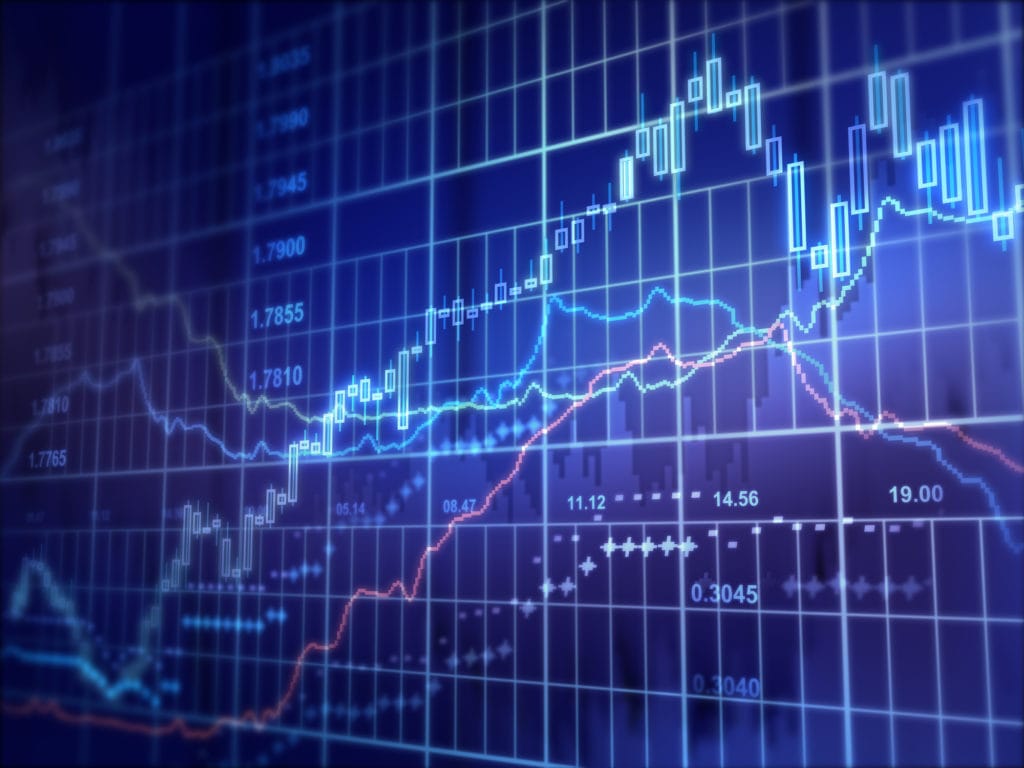
See, without value, you don't have customers. Without customers, you don't have profit. Without profit, you don't have a business.
You need revenue to keep your business up and running. And you must deliver value to keep customers buying from you.
Profit and value work in tandem, continually lifting each other up. That's why we need to get over the stigma of profit.
Profit isn't evil. Profit is what enables entrepreneurs to build new tools and technologies. Finally, that's how we drastically improve people's lives.
The Private Sector Will Solve the World's Problems
Government bureaucracies will not solve the world's problems. The last place we should be placing our faith and confidence is in government bureaucracy — it is the epitome of inefficiency.
The private sector is where you can make a difference. Entrepreneurship is the vehicle for growth — not government.
Therefore, we encourage more entrepreneurs to use capitalism to tackle humanitarian issues. Each of us can create positive change in our community, country, and planet.
Conscious Capitalism: Close, But No Cigar
At first glance, conscious capitalism sounds great — noble, even.
But isn't how capitalism always should've been? We see you, John Mackey, and we want to elevate the concept you put forward.
So, why so many people — especially millennials — so disconnected from the merits of capitalism?
It's because they can't reconcile how capitalism operates at the expense of others.
Capitalism still looks like survival of the fittest, where the elite rule without mercy.

Suppose you create a great product, excellent. But the bigger you get, the more money you make, and more of the market you dominate. In the process, your competitors get wiped out left and right.
The winner thrives... at the expense of others.
However, capitalism doesn't have to be this way. You don't always have to see a free market economy as a dog-eat-dog world. Rather, capitalism can be an incredibly collaborative environment.
We call it Collaborative Capitalism.
Embracing Collaborative Capitalism
The biggest myth in life is that you can do it alone. The same goes for business.
You just can't.
Just look at Jeff Bezos. He's the richest man alive with a reported net worth of around $13.5 billion. However, can you guess what percentage of ownership he has in Amazon?
No, really. Guess.
11%.
Eleven percent! The richest man in the world who completely revolutionized the e-commerce world and made 2-day shipping the norm owns less than a quarter of his company.
This tells you that Jeff Bezos had to rely on a lot of other people along the way. And along the way, he had to create tons of value for his customers.
Because on your own, you limit your potential. The only way to remove that limit is to stop thinking about yourself and start thinking about collaborating with other people.
Forget about how big your slice of pie is. Instead, start thinking about how you can serve that pie on a silver platter to your customer and peers.
Collaboration vs. Competition
Most people who start as entrepreneurs look at the competition.
What are they doing? How can I do it better?
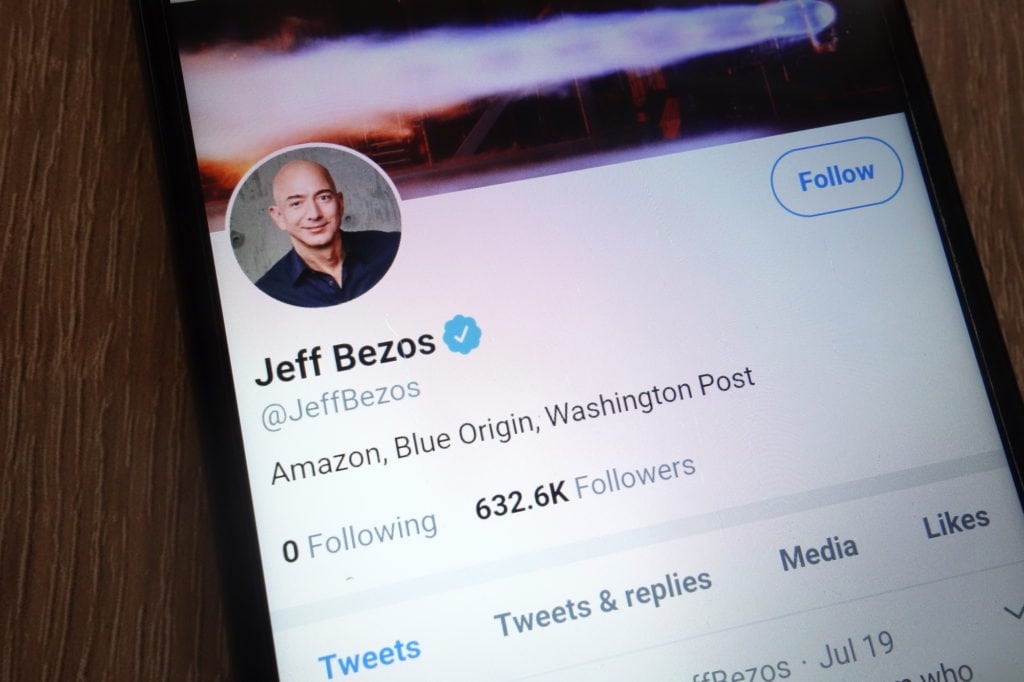
Collaborative capitalism, instead asks, "Can I create something that makes your life or business better?" This creates a win-win solution. When I serve you well, I make money, and your life improves. These are the types of businesses that are value-intensive and hugely successful.
Competitive markets are so challenging to break into these days. Other companies already dominate the market. You have to put in tons of work just to carve a tiny slice for yourself.
This fosters an environment of competition, stinginess, and extraction.
Want to build a business you can be proud of, that truly changes lives for good and satisfies your soul? Collaborate. Start looking at what other people want and then fulfilling that need.
So, Can Capitalism Last Forever?
Absolutely.
Capitalism is the vehicle that drives societies forward. Capitalism allows individuals and private businesses to innovate the market, create new technologies, and improve people's lives.
Yes, there are capitalism pros and cons. However, the advantages arguably outweigh the disadvantages. Capitalism allows individuals to thrive — which, in turn, causes nations to thrive.
We will still face various economic and social issues. Don't jump to socialism as the all-encompassing solution. Take an in-depth look at socialism's track record. Finally, reconsider what's best for you, the economy, and your community.
In short, there's a better way forward.
Conscious capitalism tells us that we need to learn how to maximize value to serve our customers better. But we can do more. In collaborative capitalism, we can think about different ways to lift each other up. This way, every transaction, and every relationship is a win-win scenario.
Here at Capitalism.com, we dedicate ourselves to making a bigger pie. We collaborate, pouring our energy, imagination, and resources into helping entrepreneurs own problems, create solutions, and serve people. Our community, The One Percent, is a give-first space where entrepreneurs connect and help each other.
We believe in building a bigger table - and we’re saving a seat there for YOU. We’d love to help you get started on your own entrepreneurial journey. That’s why we created the Capitalism Incubator for you. Check it out and join us. Together, we can change the world.




